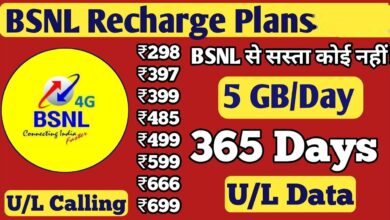What Do You Mean By Cashless Hospitalization?

Some insurance companies offer their customers a service known as “cashless hospitalisation*,” which enables policyholders to use hospital services without the stress of having to pay the associated medical fees. When it comes time to pay medical expenses, the insurance company works directly with the affiliated hospital to ensure they are produced according to the policy’s guidelines.
How does it work?
There are two scenarios in which cashless health insurance may be utilised:
Scheduled hospitalisation* and unplanned hospitalisation* in the event of an emergency. Before entering the hospital, a policyholder must submit a request to their insurance provider for cashless hospitalisation* if the hospitalisation* is planned. If he is admitted to the hospital unexpectedly, he can contact the insurance company.
According to the insurance policy’s provisions, the insurance company will pay directly for a predetermined portion of the total medical costs incurred in either scenario.
Things that need to be kept in mind –
- Only hospitals with your insurance provider’s partnership can offer cashless hospitalisation* to their patients. It will be helpful to know the list of hospitals under up cashless health scheme prior to claim.
- Even if your request for cashless treatment is granted, specific fees, such as the hospital admission fee, ambulance charges, service charges, and so on, would not be covered. Check with your insurance provider to see any cashless hospitalisation* restrictions.
- Your claim for cashless hospitalisation* may be denied if the condition for which you are receiving treatment is not included in the scope of coverage provided by the insurance.
Concise information –
- Cashless hospitalisation* is a service some insurance companies provide in conjunction with specific hospitals. These hospitals are referred to as network hospitals.
- Because of this service, a portion of your hospital charges will be directly borne by the hospital, reducing the financial load placed on you.
Cashless hospitalization types –
There are three types of cashless hospitalisation* services available in India:
- Cashless Medical Insurance Policy for Individuals
Only the insured can seek cashless benefits under this insurance policy when seeking treatment at a network hospital.
- Cashless Health Insurance Policy for the Whole Family
Individuals and their families can be covered under a single health insurance policy. All family members covered by this single plan are eligible for cashless health insurance benefits.
- Senior Citizens’ Cashless Health Insurance Policy
Senior citizen policyholders can receive cashless benefits under this plan. Subject to policy terms and conditions, the program typically covers ambulance charges, hospital expenses, and various pre-existing ailments.
Benefits of cashless hospitalization
The advantages of cashless hospitalisation* are numerous. These are some examples:
- Policyholders can avoid the hassle of arranging funds in an emergency. Individuals and their families suffer highly emotionally as a result of medical emergencies. Cashless claims relieve policyholders of the financial burden of paying for treatment in cash up front.
- Raising cashless claims has become much easier since most health insurance coverage companies have moved their operations to the digital platform.
- Leading insurance companies have over 10,000 network hospitals spread across 400 cities in India. This has made finding such services much more accessible.
Things to consider before buying a cashless health plan
Before selecting any health plan, keep the following points in mind. Check them out:
- This benefit is only available at participating hospitals.
- Your hospital can only justify your treatment.
- All bills, reports, claim forms, discharge papers, and other documents should be photocopied.
- Before making a purchase, make sure to read the fine print.
- Before purchasing cashless health insurance, double-check the sum insured amount. A policyholder must pay any excess expenses that exceed the limit.
‘Insurance is the subject matter of solicitation. For more details on benefits, exclusions, limitations, terms, and conditions, please read the sales brochure/policy wording carefully before concluding a sale.‘
(* Standard T&C Apply )





